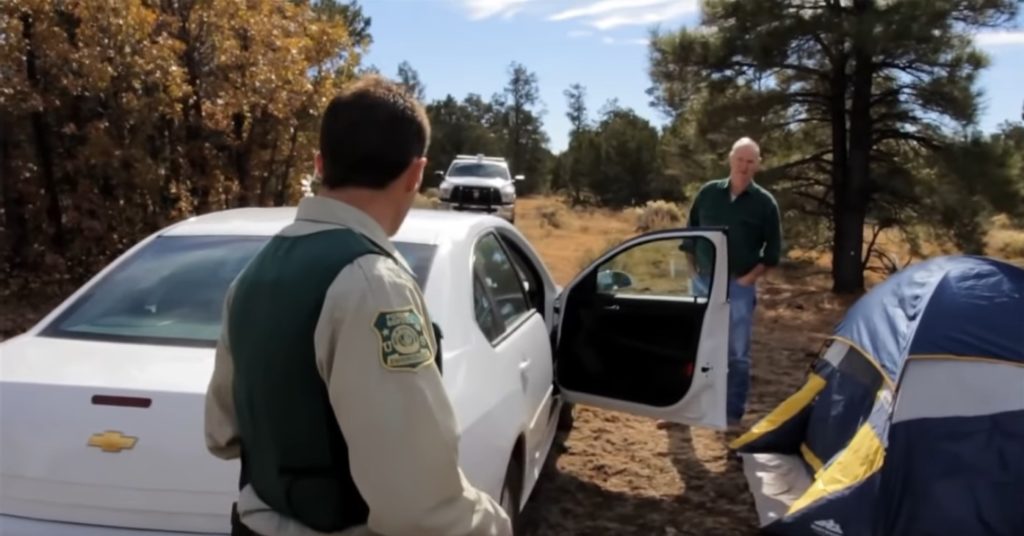No, they do not. State and local laws do not apply to federally managed lands. The U.S. Constitution actually states this. Technically, state and local laws do not apply to national parks, national forests, national grasslands, national monuments, national recreation areas, national refuges, and federally managed reservoirs. However, most of these jurisdictions will opt to cooperate with state and local agencies, anyway.

Do State and Local Laws Apply to Federally Managed Lands?
Currently, only the National Park Service (NPS) has issued a declaration that state and local laws do not apply to its managed lands. The basis for this declaration is the “Property Clause” found in Article IV, Section 3, Clause 2 of the U.S. Constitution.
The Property Clause states that only the U.S. Congress shall issue laws affecting lands and properties belonging the United States. State and local laws have no authority over federally managed lands.
Then Why Do I See Local Sheriff’s Deputies Patrolling Federal Lands?
This is because many other federal land management agencies have chosen to adopt the same state and local laws so that they can sign contracts with Sheriffs and Police Chiefs. Even though the Property Clause of the U.S. Constitution says that the federal government will regulate its own lands, these same federal agencies “made the choice” to allow state and local laws to apply.
Currently, five of the six agencies that manage federal recreation lands do this…
- Bureau of Land Management allows state and local laws to apply. Refer to § 8365.1-7 State and local laws.
- Army Corps of Engineers allows state and local laws to to apply. Refer to § 327.26 State and local laws.
- U.S. Forest Service requires its officers to cooperate with state officers in enforcing state laws. Refer to § 211.3 Cooperation with State officers.
- Bureau of Reclamation allows state and local laws apply to its lands and recreation areas. Refer to § 423.3 When does this part apply?
- U.S. Fish & Wildlife allows state and local laws to apply to its wildlife refuges. Refer to § 25.13 Other applicable laws.
Only the National Park Service remains true to the Property Clause of the U.S. Constitution and forbids state and local laws from applying.
Can I Do Stuff in National Parks That is Illegal by State Law?
Technically, yes.
For example, public nudity is illegal in all 50 states, but is not necessarily illegal in national parks. However, the NPS does have a regulation that forbids “disorderly conduct” but it only applies when such conduct creates a public nuisance. By contrast, in most states, public nudity is illegal when one’s private areas are exposed, even if it doesn’t create a nuisance. Read more about nude camping at, “Is Nude Camping Legal on Federal Lands?“
The NPS still has a lot of its own laws and regulations, and they do have a sizeable park ranger staff. So, it’s not like you can do whatever you want in a national park.
There’s also a lot of stuff that is still illegal in a national park, that may be legal in the State. For example, cannabis use and possession is illegal on NPS managed lands, even if its legal in the State.
National Parks Still Recognize State Gun Laws
The NPS makes an exception with respect to state gun laws. They have a regulation that requires parks visitors to be in compliance with the gun laws of the state in which the park is located…
The possession of the firearm is in compliance with the law of the State in which the National Park System unit is located.
§ 2.4 Weapons, traps and nets

